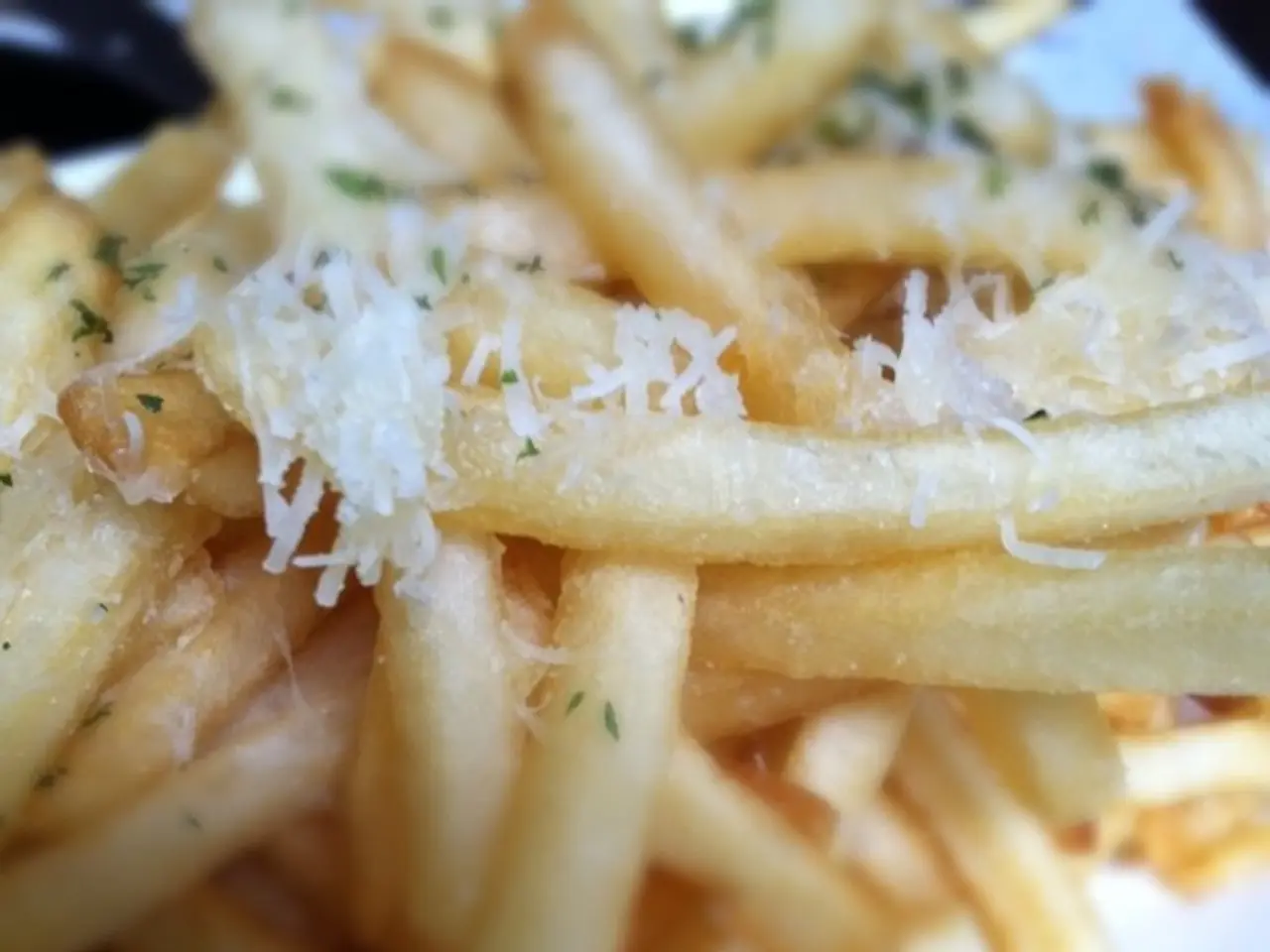Prohibition on European Travelers: Importation of Meat and Dairy Products into the UK Forbidden
In response to the rising cases of foot-and-mouth disease (FMD) across European countries, Great Britain has implemented stringent measures to restrict the importation of certain meat and dairy products from EU and EFTA countries for personal consumption.
Key restrictions include the suspension of bovine product imports from Italy and France into Great Britain, as well as stringent conditions on sheep and goat products from wider EU/EFTA sources. These measures are part of safeguard protocols aimed at protecting animal health in Great Britain and will remain in place until revoked or amended by the authorities.
Individuals can only bring certain sheep and goat products from the EU, EEA states, the Faroe Islands, Greenland, and Switzerland if the products are produced and packaged to commercial standards and bear an identification or health mark or commercial labeling if they are animal by-products. No sheep or goat milk and milk products from Bulgaria, Greece, Hungary, or Romania are allowed into Great Britain due to the risk they pose.
The restrictions do not apply to Northern Ireland, Jersey, Guernsey, or the Isle of Man. Since April 12th, it is prohibited for anyone entering Britain from EU or EFTA countries to bring in meat from cattle, sheep, pigs, goats, or dairy produce for personal use.
The British government has included dairy produce in its ban, following previous restrictions. The rules exempt a limited amount of infant formula milk, medical foods, and some products such as chocolate, confectionery, bread, cakes, biscuits, and pasta. However, sandwiches, cheeses, cured meats, and raw meats, regardless of whether they are packed or packaged or purchased at duty-free, are included in the ban.
These measures have been introduced to prevent the spread of foot-and-mouth disease, as Britain remains free of the disease while cases have risen across European countries. The country's Farming Minister Daniel Zeichner stated that the government will do whatever it takes to protect British farmers from foot-and-mouth.
Foot-and-mouth disease is a contagious viral disease that affects cattle, sheep, pigs, wild boars, and deer. It poses no risk to humans, and meat and milk from infected livestock are considered safe to consume. The disease was first reported in an EU country for several years, and the first case in Germany since 1988 was reported recently, according to a Food and Agriculture Ministry spokesman.
Anyone found with prohibited items will either need to surrender them at the border or have them seized and destroyed. A devastating outbreak in Great Britain in 2001 was estimated to have cost the country more than £8 billion. More than 2,000 animals were culled to control the disease in the UK after an outbreak in 2007.
[1] Source: UK Government Website
- These travel restrictions aim at safeguarding the lifestyle and culture of Great Britain's farming industry, as they are part of protocols to protect animal health and limit the importation of certain meat and dairy products.
- The British government's policy-and-legislation update has resulted in stringent measures for travelers, forbidding the personal importation of certain meat and dairy products from EU and EFTA countries, including milk, cheese, and cured meats, to prevent the spread of the foot-and-mouth disease.
- In the face of a rising threat of foot-and-mouth disease across European countries, the general news landscape is abuzz with discussions about travel, lifestyle, food-and-drink, and politics, as countries adjust their policies to address this issue.
- As the UK remains free from foot-and-mouth disease, travelers are advised to be mindful of the food-and-drink items they bring, as the British authorities have been seizing and destroying prohibited items, a step they took following the devastating outbreak in 2001 that reportedly cost the country more than £8 billion.





